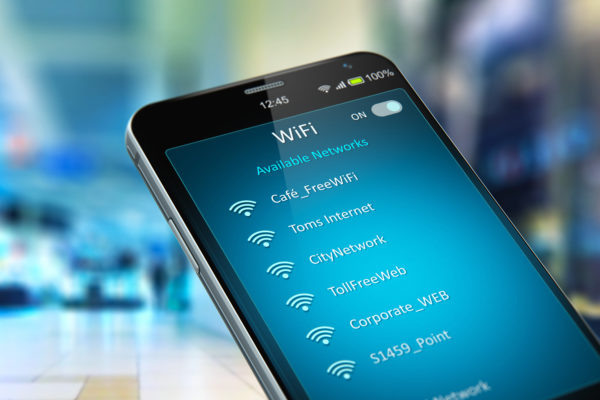Navigating the Dangers of Public WiFi

By Wayne Nitti
As lawyers spend more time out of the office, they become increasingly dependent on wireless connectivity to conduct business. The flexibility that public WiFi provides can be a boon to firms, allowing lawyers to work at any hour from practically anywhere. In fact, in 2019, one study showed the number of WiFi hot spots in the United States standing at 362 million, and will increase to 549 million by 2022.
However, this freedom of movement comes with some risk – namely, the danger of being hacked while taking advantage of publicly provided WiFi.
The same features that make free Wi-Fi hotspots desirable for consumers make them desirable for hackers; namely, that it requires no authentication to establish a network connection. This creates an amazing opportunity for the hacker to get unfettered access to unsecured devices on the same network.
Because of the lack of authentication, hackers can insert themselves between the users and the hot spot to which they are trying to connect. Relying on public wifi exposes the user to any number of types of risk, including attacks through ad hocs, man-in-the-middle attacks, sniffing, and worm attacks, to name a few.
This naïvete regarding wireless security is widespread:
A recent study showed that 78 per cent of people around the world actively look for Public WIFI sources and of those 72 per cent have complete confidence in connecting without any regard to security.
Remaining ignorant of security issues and failing to understand how securing one’s data works is a recipe for disaster on both a personal and professional level. Another survey found:
[O]f . . . the 60% of American consumers who believe that their information is safe when using public Wi-Fi, only 50% believe that they bear any personal responsibility for ensuring that their data is secure. 17% of those surveyed believe that individual websites are responsible for making sure that visitor data is secure, while the same percentage think that this duty falls to the Wi-Fi network provider.
If you must access the Internet through public WiFi, there are steps you can take to protect your information. By setting up a VPN (virtual private network), you establish a secure connection from your firm’s mobile devices, such as laptops and mobile phones, to the firm’s internal network. VPNs are easy to install and provide barriers against hacking and other types of attacks.
If the option of VPN installation isn’t available and you need to access certain websites for work, use sites that employ SSL (Secure Socket Layer) technology – look for “https:” in the URL field. SSL establishes an ecrypted link between a server and a client, such as a web server (website) and a browser. Even though HTTPS is considered secure, however, it still has certain vulnerabilities which should be evaluated when using public WiFi.
You should also consider the following:
- Turning off the WiFi auto-connect setting on your device, along with sharing and Bluetooth discoverability;
- Installing firewalls and malware detection on your device; and
- Using a mobile personal hotspot to link laptops and other devices to the Internet, obviating the need for public WiFi altogether.
Case Anywhere is hyper-vigilant about our customer’s data security. Our SSL protocol establishes a 256-bit encrypted link between our service and our clients’ Internet browser. The SSL communication ensures that all documents and messages transmitted between our clients and the Case Anywhere service remain encrypted. Additionally, we employ multi-factor authentication to protect against unauthorized access to our case files, sending the user a unique PIN via email, which must be entered prior to gaining access to the system. To learn more about how we protect your data, please visit our website or contact us at support@caseanywhere.com.

